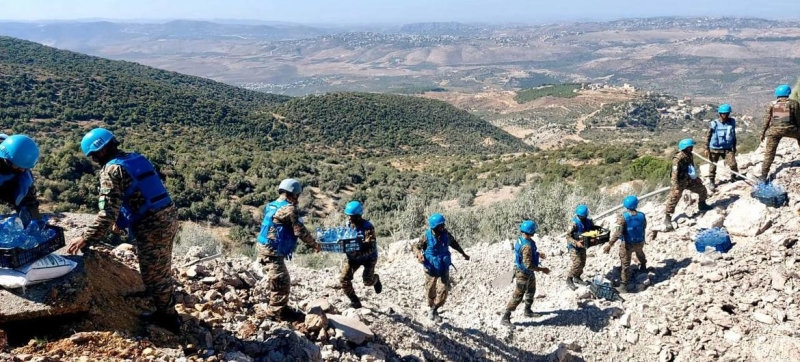
UN peacekeepers in Lebanon (archive). Top stories of the day | Monday: ZNPP, Lebanon, metapneumovirus, UN human rights defenders UN
The main news of the day in the UN and in the world: IAEA warns of increased military activity near Zaporizhzhya NPP, Israeli bulldozer destroys property of UN peacekeepers in Lebanon, spread of metapneumovirus in China, joint declaration of UN human rights experts.
Military actions near Zaporizhzhya NPP
The International Atomic Energy Agency (IAEA) staff recorded explosions near the Zaporizhzhya Nuclear Power Plant (ZNPP) the day before, which occurred in parallel with reports of a drone attack on the ZNPP training center. This is another threat to the nuclear safety of the largest NPP in Europe, said IAEA Director General Rafael Mariano Grossi. According to the IAEA team, the intensity of military activity in the ZNPP area has increased over the past 24 hours: numerous explosions were recorded at various distances from the facility.
Violations in Lebanon
The UN Interim Force in Lebanon (UNIFIL) said an Israel Defense Forces bulldozer destroyed one of the blue barrels marking the withdrawal line between Lebanon and Israel, as well as an observation tower belonging to the Lebanese Armed Forces located immediately next to a UN position. The deliberate destruction of clearly identifiable UNIFIL property, as well as infrastructure belonging to the Lebanese Forces, is a flagrant violation of Resolution 1701 and international law, the mission said.
Human Metapneumovirus
There are reports from China of the spread of respiratory infections, including human metapneumovirus (HMPV). However, as the head of the European Bureau of the World Health Organization (WHO) Hans Kluge reported, the scale and intensity of the disease, according to local authorities, remain below the level of last year. He added that metapneumovirus usually causes mild symptoms, but in severe cases it can lead to pneumonia. Kluge emphasized that simple measures such as hand washing can prevent the spread of infections and reduce risks.
UN Human Rights Experts
Human rights must once again become the basis for an inclusive, peaceful and sustainable future. This is stated in the joint declaration adopted at the 30th annual meeting of the Special Rapporteurs, independent experts and chairpersons of the working groups of the Special Procedures of the Human Rights Council. The declaration called for an end to the severe underfunding of UN human rights activities, which receive only about 5 percent of the regular budget. The experts also expressed concern about attempts to undermine their status and independence.
